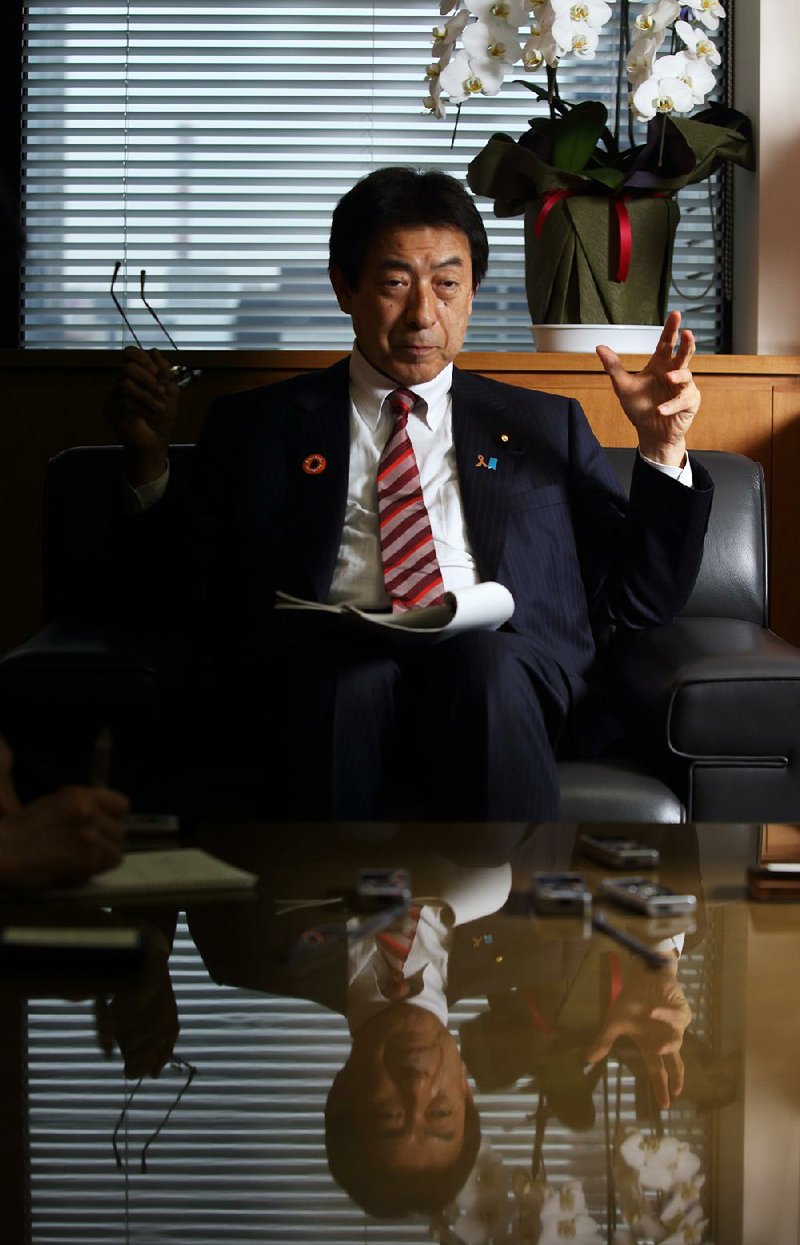Restoring Japan's industrial competitiveness is the key to fueling wage gains that the Abe government and the central bank are counting on to ensure inflation takes hold, according to Labor Minister Yasuhisa Shiozaki.
"We have to think about why wages haven't risen," Shiozaki said. "It's because we've lost industrial competitiveness. When you lose it, your profitability falls and you can't boost wages."
Shiozaki's comments show how difficult Prime Minister Shinzo Abe's task is in getting companies to increase salaries to help drive the world's third-biggest economy. Unprecedented monetary easing by the Bank of Japan has weakened the yen, raising profits for many large exporters while increasing costs for smaller, domestically focused producers.
The cost of living has risen faster than incomes, weighing on consumption and stymieing an economic recovery. Wages adjusted for inflation fell for 17 straight months through November and are forecast to rise 0.15 percent in fiscal year starting in April, according to a survey by Bloomberg News.
Bank of Japan officials assess that a 1 percent increase in average base wages, which aren't adjusted for price gains, is needed in the coming fiscal year to sustain the economy's emergence from two decades of stagnation, according to people familiar with central bank's discussions.
Economists surveyed by Bloomberg News expect this measure of pay to grow by 0.6 percent in the year.
"I want companies with high profits that are benefiting from the weak yen to raise wages, investment, and on top of that, consider the prices they pay their suppliers," Abe said on Dec. 16 at a meeting with business and labor leaders.
The yen has fallen 28 percent against the dollar since Abe took office in December 2012, helping drive up earnings at large companies including Toyota Motor Corp., which forecasts a record profit for the year through March.
Japanese corporate bankruptcies fell in 2014 to the lowest level since 1990, while the number of companies that failed and cited the yen as a contributor more than doubled from a year earlier, Tokyo Shoko Research Ltd. said earlier this month.
"Wages inevitably lag behind corporate earnings. That's why companies must restore their competitiveness fast and boost their productivity," said Shiozaki, 64, who served as chief cabinet secretary in Abe's first government from 2006 to 2007. "Companies raise salaries when they are confident their profits will keep rising after wage increases."
Business and labor leaders early each year work out broad agreements on pay for the coming fiscal period in what's known as spring wage talks. Shiozaki, who is also minister for health and welfare, said he has no specific targets for wage increases in the year starting in April.
The focus of Abe's so-called "three arrows" economic strategy has so far concentrated mainly on monetary and fiscal stimulus, with structural reforms to boost competitiveness on the agenda for this year.
Shiozaki said a new corporate governance code, which calls for at least two outside directors at companies, is set to start in June and should help align wages with market mechanisms. The labor market also needs to be more flexible to increase profitability of Japanese industry, Shiozaki said.
"Living standards won't improve without higher wages," he said. "The government's biggest goal is to boost such standards for the people."
Bank of Japan Governor Haruhiko Kuroda has called on companies to use profits more productively by investing in facilities and jobs, taking advantage of the weaker yen. He said in a speech to business leaders in Nagoya in November that hoarding cash will become costly as the Bank of Japan stamps out deflation with unprecedented easing.
Aggregate net income at 197 of the largest listed companies in Japan will expand to a record $155 billion this fiscal year, based on analyst estimates compiled by Bloomberg.
Abe secured an agreement from the Keidanren, the nation's biggest business lobby, on Dec. 16 that calls on companies to do their utmost to increase pay next fiscal year.
Information for this article was contributed by James Mayger of Bloomberg News.
SundayMonday Business on 01/25/2015
